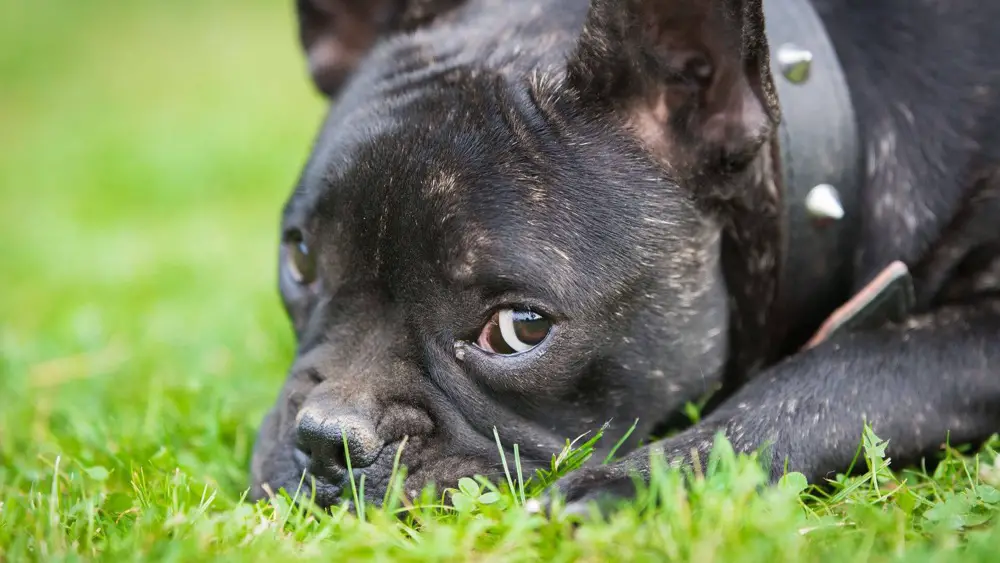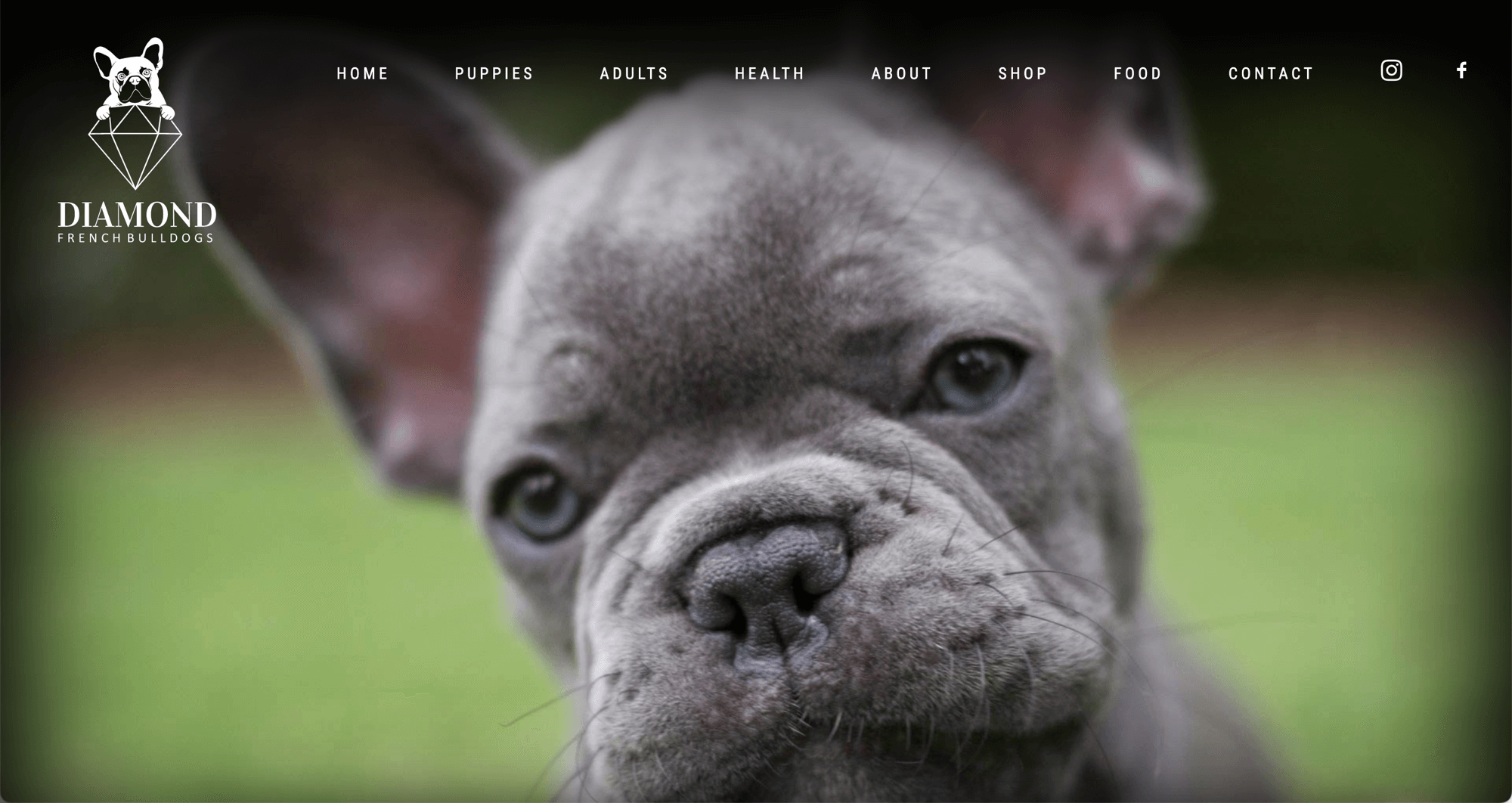
French Bulldogs are the most loving and beautiful pets, so it can be worrying when they are not the healthiest weight they can be.
When I want my French bulldog to put on some weight, there are lots of things I do to ensure that it is happening in the healthiest way possible.
It is important that your Frenchies meals are healthy and well-balanced, and if you want your Frenchie to put on weight, foods that are high in proteins and carbohydrates are essential.
This article will explore the healthiest ways for you to help your French bulldog gain weight without becoming unhealthy.
Let’s dive in!
What Is A Healthy Weight For A French Bulldog?

The average weight for a Frenchie is 24 pounds, with a healthy weight ranging from 20 to 28 pounds.
It is very common for a French Bulldog to have issues when it comes to weight, and obesity is very common in Frenchies. If your Frenchie has visible ribs and they seem lethargic then it is likely that they are underweight.
You should also keep an eye on their appetite, as if they do not seem to have much of an appetite they may be struggling.
If your Frenchie is moving slowly, having some difficulty breathing, and has a pot belly, then it is likely overweight.
It is important that your French Bulldog is a healthy weight because if it is not, there are many different health problems that it might start to face. Whether the dog is overweight or underweight, there are problems associated with it.
If you are concerned about your dog, take it to the vet to get some advice on what might be causing the weight issues, and what you can do to help. In the meantime, have a look at some of these ideas.
How To Help A French Bulldog Gain A Healthy Amount Of Weight
If your Frenchie is underweight, there are plenty of things that you can do to help them gain weight in a healthy way.
Perhaps your dog has been ill recently, and has lost a lot of weight, or they have not had much of an appetite. If this is the case, try slightly increasing the portion sizes that you are giving your dog.
Ensure that it is still healthy food, and that they are eating a balanced diet.
Make sure that you don’t overfeed your dog, though, as this can lead to obesity and other health complications.
If your dog is struggling to gain weight, or they are losing weight rapidly, you should speak to your vet immediately and have some checks done on the dog.
This is important as it is not that common for Frenchies to be underweight.
Why Are Frenchies Prone To Being Overweight?
Frenchies are brachycephalic breeds. This means that they have a very short nose. In a lot of cases, this leads to breathing difficulties which mean that the breed often struggles when it comes to exercise.
It is very dangerous for French Bulldogs to exercise too much as they may experience complications as a result of this.
Because of the lack of exercise, Frenchies are prone to weight gain. This also happens because they are very small dogs.
Their ideal weight is very low and therefore very difficult to maintain. As well as this, these dogs really enjoy eating, so they will eat whatever they are given.
It is dangerous for these dogs to put on weight as it can lead to even more health complications.
How To Keep Your French Bulldog At A Healthy Weight
Feed Them Lighter Dog Food

It is a good idea to feed your French Bulldog lighter dog food if they are overweight. This food is much better for your dog, as it is easier to digest. It will also help to stop your dog from becoming obese.
Don’t Overfeed
It is very important to make sure that you don’t overfeed your Frenchie, even if they are asking for more food. It can be hard to do this, as they are very hungry dogs, but it is important to not overfeed them.
You should be giving your French Bulldog around 1-2 cups of food per day. This should be given once in the morning and once in the evening.
If you overfeed your French Bulldog then they are likely to gain weight and experience a lot of different health problems.
Reduce Portion Sizes
If your Frenchie is very overweight, you may need to reduce the amount of food that you are giving them. This is a great way to encourage them to lose weight as you will help them to remain healthy.
Always speak to your vet about any changes to the diet of your dog, though, as you need to make sure that you are not underfeeding them.
There are essential nutrients in the food that you give your Frenchie, so it is important to make sure that they are getting everything they need in this regard.
Stop Feeding Them Treats
Treats have calories in them too, so it is a good idea to cut back on the number of treats that you feed your Frenchie.
Ensure that you are mindful of when you give your French Bulldog treats to ensure that you are not giving them over 10% of their daily calorie intake through treats.
This is quite an easy place to cut back, and it will help your dog to lose weight.
Exercise

Although these dogs are not the most active, it is very important that you ensure that you are walking your dog regularly.
They need to be active in order to stay healthy, and this will make them more likely to maintain a healthy weight, too.
It is recommended that Bulldogs get 20 minutes of exercise per day, but this doesn’t have to be all at once. You can opt for taking them on a few shorter walks each day instead of one big one.
You should also be careful to not walk your Frenchie in the heat because the breed really struggles to cope with warm weather.
Weigh Your Frenchie
It is a good idea to weigh your Frenchie regularly so that you are aware of their weight. This will allow you to be more on top of whether or not they are maintaining a healthy weight.
If your dog is still not losing weight, you should take a trip to the vet. They might have some advice on how to help your dog to lose weight, or some possible causes for the weight gain.
Final Thoughts
There are lots of ways in which you can help your French Bulldog to gain a healthy amount of weight if they are underweight, or to lose weight if they are overweight.
It can be difficult to maintain a healthy weight in your Frenchie because they are not very active dogs, however, there are lots of things that you can do.
Hopefully, you now have lots of hints and tips on this topic. If you need any more guidance or you have any concerns, don’t hesitate to speak to your veterinarian.
They will have lots of guidance and advice.






